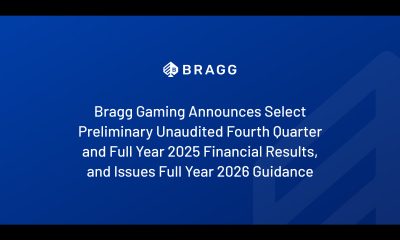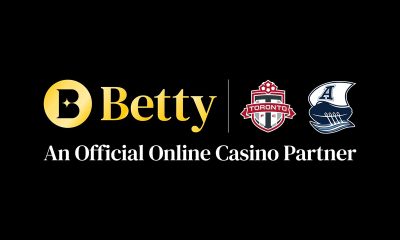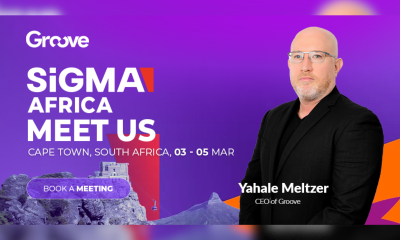Interviews
Roundtable – Continent 8’s Leaders and Legends
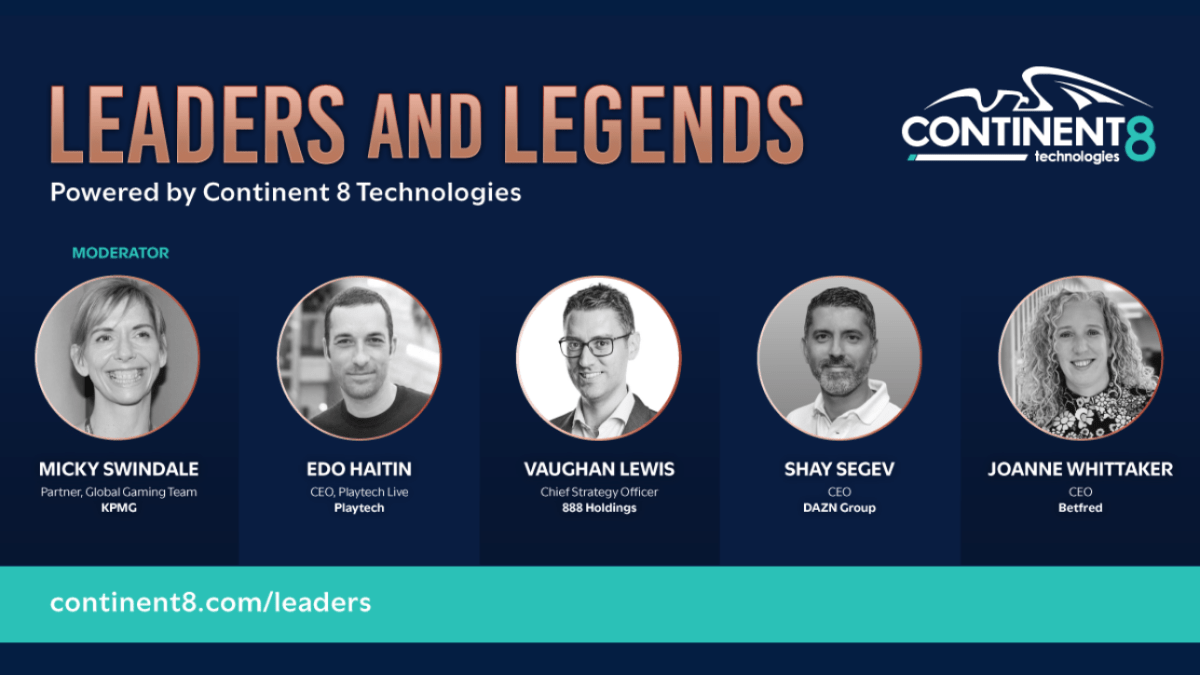
The Continent 8 Leaders and Legends series has been running for several years now, bringing together some of the industry’s biggest names to share their thoughts, insights and experiences on the hottest trends of the moment. The latest Leaders and Legends took place at the KPMG Gibraltar eSummit and saw heavyweights Shay Segev (Chief Executive Officer at DAZN), Joanne Whittaker (Chief Executive Officer at Betfred), Edo Haitin (Chief Executive Officer at Playtech Live) and Vaughan Lewis (Chief Strategy Officer at 888 Holdings) take to the stage to discuss a wide range of topics from the review of the UK Gambling Act to the future of retail in an increasingly digital world.
Moderator:
Micky Swindale – Partner, Global Gaming Team – KPMG
Panellists:
- Edo Haitin – Chief Executive Officer – Playtech Live
- Vaughan Lewis – Chief Strategy Officer – 888 Holdings
- Shay Segev – Chief Executive Officer – DAZN
- Joanne Whittaker – Chief Executive Officer – Betfred
MS: What changes do you expect to see as a result of the UK government’s review of the Gambling Act? What impact might tighter restrictions have on the market and how are you preparing for them?
JW: We just need to know what is coming. The review is hanging over us and we just need to be able to move on as an industry. We are agile, we evolve. We have heard some of the expected changes around slot stake limits, enhanced affordability checks, the levy and so on but until we know exactly what changes are coming, it is hard to properly prepare. Of course, as a business, we are trying to get ready for what is to come. I think initially there was a bit of panic, but we have got passed that now. We had a significant hit on retail when the FOBT legislation came in a few years ago, but we survived that and when I talk to Fred, he always says these legislative changes come in cycles. So, we are watching, we will respond, and I hope that we are given time to implement the technology changes that will be required. But right now, it’s just a case of wait and see.
VL: I think getting the line right as to where gambling tips over from personalisation, enjoyment and the promotion of great products and offers into something that becomes exploitative is the really challenging area that the review of the Gambling Act is trying to address. For us, we just want clarity about what are the standards that we need to meet. Once operators have that clarity, we then back ourselves to be able to provide a great player experience but with high levels of safety and within the standards set. At the moment, we are not clear on what standards we are trying to meet so our hope is that through the review process we get that clarity. Once any changes from the review have been implemented, we can then refocus on delivering the best player experience.
EH: Coming from the provider side, my perspective is perhaps a bit different. I believe that it is in the product to solve issues around responsible gambling and affordability and to deliver the right player experience. This also needs to be done in a way that the regulator can see that the player is doing so within their affordability. So, it is our responsibility as a provider to give our operators the products to do this. On the flip side, and especially as a big provider, I do feel for smaller businesses as the bar for entry into the market is being set even higher. So, regulators should bear in mind that there are companies making their first move that do need clarity and guidance as to what is expected of them.
ML: All jurisdictions, including Gibraltar, are having to quickly adapt to market changes. But what makes Gibraltar such an appealing jurisdiction to companies such as DAZN?
SS: We recently announced that DAZN would be going into betting with the launch of DAZN Bet and that we would be using Gibraltar as the hub for that. Having personally been based in Gibraltar for the last ten years I have found the jurisdiction to be amazing both in terms of the government’s support for the industry and the infrastructure it has provided, as well as the ability to establish a business here. It is also highly respected in terms of its regulatory framework and standards, and the talent that can be accessed here is second to none. This made it a very easy decision for us to set up DAZN Bet in Gibraltar.
MS: As the industry continues to grow, we have seen a real wave of M&A activity crash over the sector. With no sign of these mega deals slowing down, is now the right time for smaller businesses to position themselves for a takeover? And what makes for an attractive acquisition target?
VL: We are not seeing any slowdown in the trend of mega transactions. We have been through multiple waves of M&A and deals just keep getting bigger and bigger. We just closed a £2bn transaction but that now seems relatively small. Just before Christmas, Flutter undertook a £2bn acquisition and didn’t even have an investor call to explain it, it’s kind of like a bolt-on for them now. And then a few weeks ago you have the MGM takeover of LeoVegas, which it called “bite-size”. We are definitely in a new phase of the industry where these huge businesses have been created and significant value has been generated, and that is starting to really drive the M&A cycle.
At the medium and smaller end, we are still seeing a lot of activity. These transactions often have one or more characteristics that they share including unique products and content that you just can’t get elsewhere or that you can’t create quickly enough, market access, media convergence and other attributes that drive outsized value. This is where the future focus of M&A will be.
MS: The big four operators now account for more than 50% of the UK market share, so these companies can leverage the advantages of scale. But what impact does this have on consumer choice?
EH: We are an entertainment business, and the future of entertainment cannot be controlled by big companies. We see today that the biggest entertainers in the world are individuals that pick up their smartphones and cameras and stream videos on YouTube to tens of millions of followers. That makes them the big force in entertainment. I understand why companies undertake M&A and want to drive scale, but will this stop other businesses from entering the industry, I don’t think so. The nature of entertainment is so fluid that what is popular now will be different in five years’ time and we will most likely consume it differently. Once you work with video and content, you really pay attention to this and when we look at the market and what is in front of us, we see our immediate rivals but also those on the sidelines of the industry. Consolidation might block the immediate entry for some companies, but I do not believe that it will block the variety and versatility of the products that are offered to players.
SS: I think we might also see consolidation between industries with new experiences coming in. Where betting and gaming were perhaps seen as unethical just a few years ago, big businesses from outside of the sector are undoubtedly now looking at it. I think the US opening up has changed perceptions, too. For example, ESPN and Disney have indicated they are considering betting as a potential market for them to explore.
MS: The industry is expanding internationally with new jurisdictions embracing licensing and regulation all of the time. But with most taking a state-by-state or province-by-province approach, just how tough is it for operators to be truly global?
VL: If you were to ask all operators and suppliers if you could wave a magic wand and have harmonised rules across the world, I think the vast majority would say that is the dream scenario. It would enable us to really focus on product innovation and development, player protection and ultimately creating a much better consumer experience rather than having to spend time tailoring the platform for each market. We are one of the few operators that have a global, scalable platform that can run in multiple jurisdictions, but we have to tailor that to each market. If you look at the US, the investment we have to put into each state to meet the local tax and disclosure regulations sucks up a lot of time and diverts resources away from other areas that could be much more productive in terms of making great products and really looking after players. The more we can move towards standardised approaches, especially in the area of player protection, the better it will be for all stakeholders.
EH: Any company that wants to enter regulated markets such as the UK really needs to have a strong compliance team in place. This team is not there to scare you but to give you direction when it comes to developing products within the guidelines set. For us, one of the biggest challenges in the US is that we have to create a dedicated studio in each of the states that we enter based on the Wire Act of 1961. At the time I couldn’t understand why we could not just build one studio, but now we are up and running I see it as a good barrier to the competition. Really, you need to embrace regulation and understand the meaning behind it, even if you do not agree with it. For us as a live casino provider business, having to create a studio in each of the states we target is not optimal. But if you can understand the playground you are in and cater to that culture, it is possible to succeed.
MS: In all of our talk about online, are we losing sight of the land-based punter? Is it true that once they have gone online, they will never come back to retail betting?
JW: During Covid, it was a real fear for our business. Our retail shops were forced to close which saw our online business grow significantly but now restrictions have been lifted we have seen retail fully bounce back. We are really pleased with how the high street is performing and we can see that our customers are enjoying the betting shop experience and especially the social element. Long may that continue.
SS: You can’t ignore that betting shops are more part of the past than the future of the industry. I do think there is an opportunity to reinvent the betting shop experience, which some operators are doing with things like self-service betting terminals. There is something there but, clearly, it is not on the rise and consumers are transitioning to digital. That said, there is room to create something synergistic between retail and online.
JW: I agree there will not be new betting shops coming but at the turnover level customers are returning and they want to come to the shop. Our digital business has normalised, but we are in a much stronger position than we were pre-Covid. There is a place for the high street; I believe in SSBT and omnichannel but customers still want to come into the retail environment. We are also seeing this in other territories. In our US business, the retail performance is strong in the casinos where we have partnerships and in South Africa, we have a significant retail presence, too, although it is a very different retail offering with a much bigger footprint with 30-40 tills. I understand the importance of digital, but retail will survive.
VL: As an industry, we do not do a great job of standing up and talking about the value of the products we are selling. Retail is back to where it was post-pandemic because people love it, and they go to the shops because it is a fun thing to do. It is similar to the convergence of media and online, so long as we are providing something of value to consumers then that’s great. I think we should be proud of the service and entertainment we provide and for me, retail betting still provides a huge amount of enjoyment for customers. Betting shops never really went away, they just had to close due to the pandemic and they remain a core part of the industry.
EH: I’m going to take the middle ground here. Retail is back and I think part of the reason why players are enjoying going to betting shops is that it was taken away from them for a long time. But I do agree with Shay that reinventing betting shops is an important thing. This includes self-service and other experiences that will drive people to retail as well as online. As a live provider, we are often asked if we are cannibalising land-based by my answer is always no. We are an extension of the business, and I don’t believe we can really replace the experience of going to a casino.
Powered by WPeMatico
Compliance Updates
Endorphina Compliance Strategies Explained ahead of HIPTHER Prague Summit
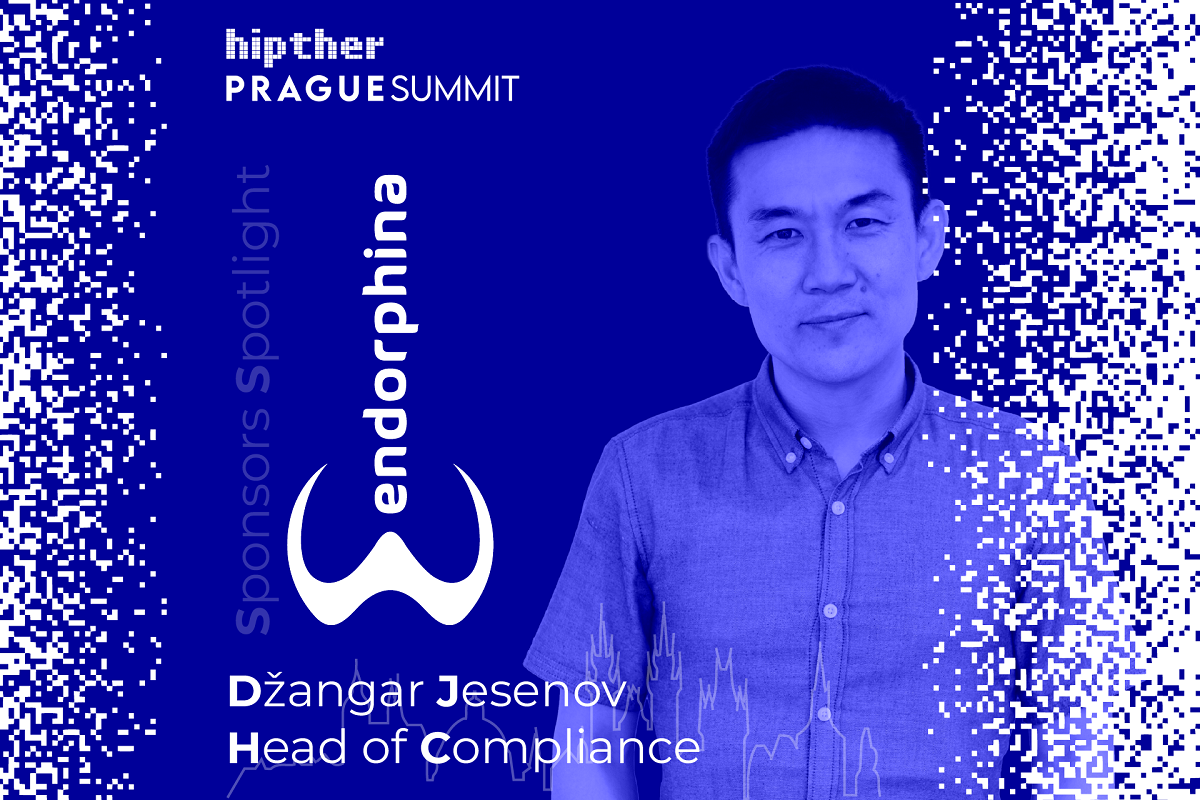
Ahead of the HIPTHER Prague Summit 2026, we speak with Džangar Jesenov, Head of Compliance at Endorphina, to explore how the company approaches regulatory excellence, market expansion, and certification in an increasingly complex global iGaming landscape – and how strong compliance frameworks support sustainable growth across Tier-1 European markets.
You have been leading Endorphina’s compliance function since 2021. How has the regulatory landscape in Europe evolved during this period, and what shifts have had the biggest operational impact on suppliers?
If I were to compare Endorphina in 2021 and Endorphina in 2026, I would describe them as two fundamentally different projects that nevertheless share the same core identity. The primary objective remains unchanged. However, the tools, scope, and operational framework used to achieve that objective have evolved significantly.
The development of the project reflects various external factors, including increasingly stringent regulatory requirements across multiple jurisdictions, technological advancements particularly within the financial sector and, importantly, substantial strengthening of human resources. Ultimately, people remain the most critical element in any successful project.
– From a regulatory perspective, I would particularly highlight the introduction and expansion of B2B licensing policies
Across jurisdictions on different continents, and the increased responsibility placed on game suppliers.
– Most notably, the heightened focus on player protection and security
In my view, enhanced player safety is one of the most important developments in the industry. Delivering engaging, high-quality games that are fully compliant with applicable legal frameworks is the foundation of any successful online platform and this is a commitment we uphold 24/7/365.
Endorphina has successfully expanded its presence across Tier-1 European markets. From a compliance perspective, what are the key pillars that enable smooth market entry and long-term sustainability?
In practice, there are unfortunately no “miracle tools” that would allow us to operate seamlessly at the highest regulatory level.
– I may not be saying anything new or particularly surprising here, but behind every jurisdiction we enter lies a substantial amount of work
Each market requires extensive hours of analysis, including a detailed review of regulatory obligations, comparison of local data requirements and reporting outputs, development of internal policies tailored to the specific regional framework, structured internal data sharing across project teams, and the implementation of oversight mechanisms to ensure compliance with newly introduced rules.
There is a significant amount of daily routine involved continuous processes, reporting, analysis, and, where necessary, re-implementation of procedures, including updates or revisions of internal regulatory frameworks.
Certification and regulatory alignment remain major challenges for many suppliers. How does Endorphina structure its internal processes to ensure efficiency while maintaining full regulatory integrity?
With the development of regulatory obligations, our practices in this area are also evolving. Compliance in the gambling business matures like fine wine. The more stable your team is, the stronger your position on the market becomes. Today, regulations are being introduced in many new jurisdictions where gambling was completely prohibited just a few years ago, and I see this as progress from a regulatory perspective.
– Our internal processes are continuously evolving toward the automation of data that does not require increased attention
Human resources are instead focused on information that is more relevant and requires deeper integrity.
With increasing focus on information security, responsible gaming, and technical standards, how do you see the role of compliance teams evolving within modern iGaming organisations?
As regulatory obligations continue to evolve, so does our practical experience in this area. Compliance in the gaming industry matures over time – much like fine wine.
– The more stable and experienced your team is, the stronger your position in the market becomes
Today, regulation is being introduced in many new jurisdictions where gambling was completely prohibited just a few years ago. I see this as a positive development and a clear indication of progress from a regulatory perspective.
Endorphina has built a reputation as a trusted slot provider with a strong global partner network. How should compliance, product development, and commercial teams collaborate today to support scalable growth?
As Head of Compliance, I believe scalable growth is only achievable when compliance, product development, and commercial teams operate in full alignment rather than in silos. Compliance must be involved from the earliest stages of market entry and product design to prevent delays, reduce regulatory risk, and support sustainable expansion.
– Product development should focus on modular, certification-ready solutions that allow efficient adaptation across multiple jurisdictions
Commercial strategy must remain closely aligned with regulatory feasibility, ensuring that opportunities are both attractive and compliant. Ultimately, stable and experienced teams are the key factor in building long-term, regulatorily resilient growth.
Looking ahead to the next 12–24 months, which regulatory or market developments should operators and suppliers be preparing for most carefully?
In this area, we are working very intensively. Looking ahead, I anticipate further increases in regulatory obligations, faster development of regulated markets, and structural changes in core online gaming products.”
– I expect deeper integration of games with the player environment, placing greater emphasis on individual profiling and personalization of each session
These evolving models will inevitably be reflected in regulatory frameworks, with a stronger focus on player protection and proper tax accountability. At the same time, regulators will increasingly compete to attract high-quality market participants, a category to which Endorphina clearly belongs.
In the near-term perspective, many of today’s processes will become standard industry practice, while additional requirements will emerge, particularly those linked to the accountability and oversight of key individuals within licensed entities.
Endorphina is the GamingTECH Awards Party & Ceremony Sponsor at HIPTHER Prague Summit 2026. What would you like operators, partners, and industry peers to take away from engaging with your team during the event?
Thank you for the opportunity to be among the first to welcome our friends. First and foremost, I would like to thank everyone who will be joining us in person in one of the most beautiful cities in the world, Prague.
I wish all participants a truly enjoyable experience.
– Make the most of every moment spent among inspiring people
Boost your personal endorphin levels and take the opportunity to get to know the Endorphina team more closely.
The post Endorphina Compliance Strategies Explained ahead of HIPTHER Prague Summit appeared first on Eastern European Gaming | Global iGaming & Tech Intelligence Hub.
AI
FlexPlay: building a platform made to grow with its partners
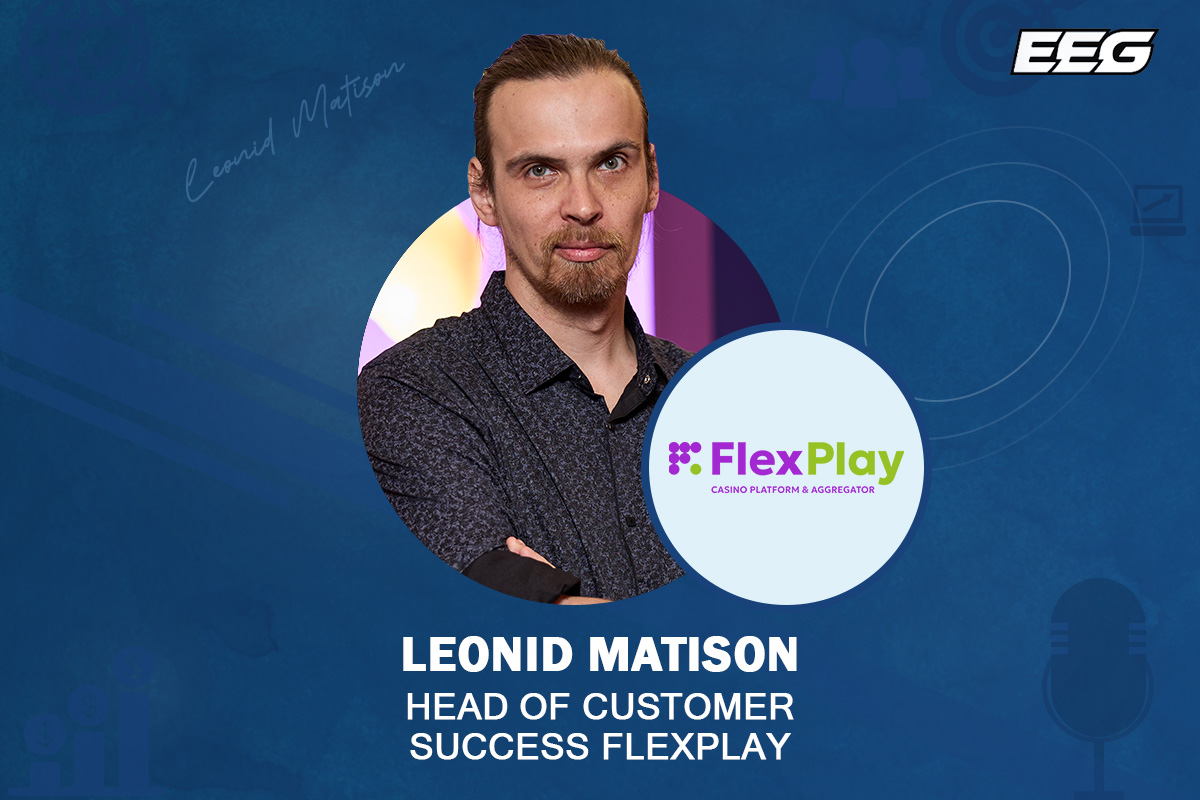
FlexPlay is entering a new phase with the launch of its own casino platform. Leonid Matison, Head of Customer Success, speaks with EEGaming about what inspired the company’s evolution, how it is helping partners adapt to change, and why a focus on flexibility, creativity, and collaboration is driving its vision for the future.
What inspired the move into the platform space, and how did that background shape your approach to creating it?
FlexPlay was born from EvenBet Gaming out of working closely with operators and studios as an aggregator, so we had a very clear view of where existing platforms were falling short. Many operators were forced to adapt their business models to rigid technology instead of the other way around.
Moving into the platform space was a natural evolution. We wanted to build a product that reflects how the market actually works today: fragmented regulation, fast-changing player behaviour, and the need to launch, test, and adapt quickly. That background shaped our approach significantly. Instead of building a “one-size-fits-all” platform, we focused on modularity, flexibility, and speed, so operators can grow without having to rebuild their infrastructure every time their strategy changes.
The platform market is full of established names. What makes FlexPlay stand out, and what kind of identity are you building for the brand?
Our differentiation isn’t about being louder or bigger — it’s about being more adaptable. FlexPlay is designed as a partner-centric platform, not a closed ecosystem.
We are building an identity around flexibility, transparency, and collaboration. Operators can customise their product, UX, content strategy, and growth roadmap instead of fitting into predefined templates. Commercially, we also remove unnecessary pressure at early stages, for example with models where partners don’t pay content fees until they actually start growing.
In a crowded market, identity comes from how you work with partners day-to-day, not just from features on a website.
You have described FlexPlay as a platform that “evolves alongside its partners.” What does that look like in practice for operators working with you?
We don’t treat launch as the finish line. We stay actively involved after go-live.
Operators receive ongoing support in analysing performance, adjusting content portfolios, testing new mechanics, and refining player engagement strategies. Our platform allows operators to add, remove, or prioritise content quickly, run experiments, and respond to real player data instead of assumptions.
We also actively listen to partner feedback and translate it into platform improvements. If a feature or workflow doesn’t serve operators in real conditions, we adjust it.
How does that flexibility help brands entering fast-changing or emerging markets where conditions can shift quickly?
Emerging markets rarely follow a stable or predictable path. This year, we are going to SiGMA Africa for the first time, and this continent is just the right example of how quickly and often market transforms. Regulation changes, payment preferences evolve, and player behaviour can shift very quickly.
FlexPlay’s flexibility allows operators to adapt without disruption: adjusting payment flows, reconfiguring bonuses, changing content focus, or localising UX. The platform isn’t locked into rigid structures, so operators can react to market signals in weeks rather than months.
This is especially important for brands entering highly volatile markets in Africa or LatAm, where the ability to pivot often determines success.
AI is a hot topic right now. How are you exploring its potential at FlexPlay, and what do you find most exciting about how it can genuinely support operators and players?
We approach AI very pragmatically. For us, it’s not about replacing people or creating black-box systems, but about enhancing decision-making.
We are exploring AI in areas like player segmentation, behavioural analysis, and content recommendations. It may help operators understand what players actually want and when. AI can also support smarter lobbies, more relevant promotions, and better detection of engagement patterns.
What excites us most is AI’s ability to reduce noise. It can highlight what truly matters and help them act faster and more confidently. But it can’t and will not fully replace strategic decision-making by humans.
Personalisation has become an essential part of modern player engagement. What does it mean to you in practice, and how is FlexPlay helping operators bring it to life?
For us, personalisation means relevance. Not just visuals or messages, but the entire player journey. FlexPlay enables operators to segment players based on behaviour, preferences, and performance, and then tailor content, bonuses, and communication accordingly. This helps players discover games that actually match their interests instead of scrolling through endless lobbies.
Good personalisation improves retention and trust. Players feel understood rather than pushed, and operators benefit from stronger long-term engagement.
But we suggest avoiding over-personalisation: if the players see only the recommended “long tail”, it may affect the operator’s revenue. Manual curation in addition to personalisation (like featuring a seasonal game during a holiday, or an operator’s personal favourite) allows for strategic promotions and branding.
Growth can be exciting but also challenging for operators. How do you and your team at FlexPlay support partners as they take that next step?
Growth often exposes weaknesses in technology or strategy. Our role is to help operators scale without losing control.
We support partners with analytics, reviews, and strategic guidance, helping them prioritise what to scale and what to optimise first. Technically, the platform is built to handle growth without forcing structural changes. Commercially, we remain flexible so that a transition is easier for operators.
Looking ahead, what are the key milestones or developments you are focused on for the year ahead?
Our focus is on deepening platform intelligence and partner value. This includes expanding AI-driven tools, improving content discoverability, and enhancing automation where it adds efficiency.
We are also investing in better insights for operators: not just reporting, but actionable recommendations that help them make smarter decisions faster.
Another priority is continuing to refine our platform based on real partner use cases, not theoretical ones.
And finally, when you think about FlexPlay’s future, what do you hope the company will represent within the wider iGaming industry?
I hope FlexPlay will be seen as a trusted growth partner — a company that helped operators build sustainable businesses rather than short-term results.
In an industry that often focuses on speed and scale, we want to represent balance: technology that adapts, content that makes sense, and partnerships built on mutual success.
If operators look back and say, “FlexPlay helped us grow the right way,” that will be the real measure of success.
The post FlexPlay: building a platform made to grow with its partners appeared first on Eastern European Gaming | Global iGaming & Tech Intelligence Hub.
boutique studios
Movers and Shakers: The blueprint for boutique studios looking to crack America
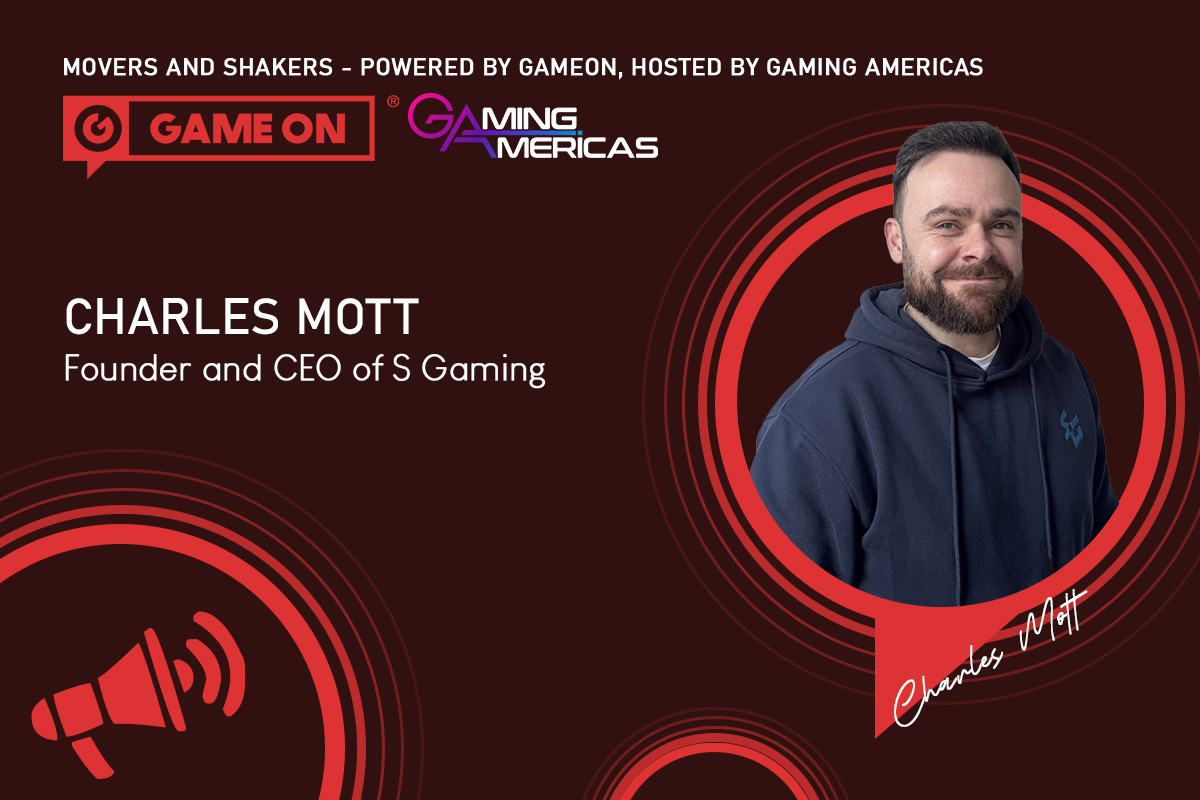
“Movers and Shakers” is a dynamic monthly column dedicated to exploring the latest trends, developments, and influential voices in the iGaming industry. Powered by GameOn and supported by HIPTHER, this op-ed series delves into the key players, emerging technologies, and regulatory changes shaping the future of online gaming. Each month, industry experts offer their insights and perspectives, providing readers with in-depth analysis and thought-provoking commentary on what’s driving the iGaming world forward. Whether you’re a seasoned professional or new to the scene, “Movers and Shakers” is your go-to source for staying ahead in the rapidly evolving iGaming landscape.
Charles Mott, Founder and CEO of S Gaming, says finding success in the US is a tough task, but that studios who can replicate the magic of the casino floor have what it takes to make it stateside
There are plenty of European studios that have set their sights on finding success in the US, but very few have actually managed to achieve it. This is because they are making a common mistake, and that’s failing to translate the preferences of US slot players into their games.
For more than a decade now, the UK and European markets have been defined by “the chase” – high volatility slots with massive, infrequent max wins and jackpots that deliver anticipation and thrills, but that also exhaust the player’s balance in minutes.
But if you walk on to the floor of any Las Vegas casino, the atmosphere is different. It’s about “time at machine”. It’s the neon, the regular dopamine hits of smaller wins and the ability to make $100 provide an entire evening’s worth of entertainment.
As the US market increasingly moves to online, with more states embracing regulated iGaming, it’s no longer finding its feet with players now actively looking for a digital version of the land-based soul they have loved for many years.
Moving away from the “big win” to the “long session”
US players have been culturally conditioned by the physical casino experience. Unlike the high-stakes digital environment of Europe, the American player often views slots as a leisure activity rather than a jackpot hunt.
This is why S Gaming has focused on fun, entertainment and sustainability, with our games matching the “steady tortoise” cadence of land-based slot machines. They still deliver lots of big win potential, but across longer and more engaging sessions.
For operators like BetMGM and Fanatics, both of which we’ve recently partnered with, it’s not just about fun, it’s about retention.
A player who loses their balance in three minutes is a churn risk, but a player who wins small, frequent prizes stays in the ecosystem for longer and ultimately generates a much higher lifetime value.
Efficiency over ego
But it’s not just about having the right games, distribution is also key to cracking America. This is a notoriously difficult market because it’s not one jurisdiction, it’s five (and counting) regulatory islands and in each, you need to secure regulatory approvals.
This is actually a moat that keeps many smaller studios out. It’s an issue we had to overcome, and ultimately looked for a partner that could help us bridge the gap. Our agreement with Gaming Realms allows us to use its remote game server and licences to launch into US states.
This “Infrastructure-as-a-Service” model allows a studio to focus on “game grammar” (math and art) while the partner handles the “plumbing” (compliance and connectivity). It’s the leanest way to hit the ground running with a tier-one operator across multiple states simultaneously.
Why tier ones are buying in
You might be wondering why a tier one giant like BetMGM has joined forces with a boutique UK studio and facilitated its launch into the US.
But the reality is that operators are fighting soaring acquisition costs right now and this means they no longer want more games, they want differentiated games that reduce churn and keep players coming back for more.
Our focus on sustainable entertainment aligns with current US regulatory requirements and the focus on responsible gaming. Games designed for longer, lower stakes sessions are inherently “safer” and more palatable to regulators and risk-averse operators alike.
And they just hit the mark more with players. Sure, winning is a big part of playing online slots, but how you get to the win and the perceived entertainment value is now just as if not more so important – not just in the US but in the UK and Europe, too.
The data-driven evolution
Success does not come from a single launch – it comes from having a feedback loop. We now have a handful of games live in the US market, including our flagship Triple 7 Jackpot title, from which we are gathering real-time data on player behaviour.
This is allowing us to move from “what we think players want” to “what the data tells us they love” and this in turn is allowing us to refine our product roadmap and the games we are producing for the US market, ensuring each title is more culturally resonant than the last.
The new era of transatlantic growth
Cracking America in 2026 isn’t about having the loudest brand of the biggest marketing budget – it’s about understanding the psychology of the casino floor.
The studio’s that succeed will be those that realise the US player isn’t looking for a new way to gamble, they’re looking for a digital version of the “Vegas” feeling they’ve known and loved for decades.
The post Movers and Shakers: The blueprint for boutique studios looking to crack America appeared first on Americas iGaming & Sports Betting News.
-

 Adjusted EBITDA6 days ago
Adjusted EBITDA6 days agoBragg Gaming Announces Select Preliminary Unaudited Fourth Quarter and Full Year 2025 Financial Results, and Issues Full Year 2026 Guidance
-

 Bagley-Keene Act6 days ago
Bagley-Keene Act6 days agoCalifornia Gambling Control Commission Issues Critical Guidance on Stakeholder Communications and Ex Parte Rules
-

 iGaming5 days ago
iGaming5 days agoPRAGMATIC PLAY UNEARTHS PROGRESSIVE MULTIPLIERS IN ROLLING IN TREASURES
-

 Comatel4 days ago
Comatel4 days agoCOMATEL CELEBRARÁ UNA FIESTA PARA CIENTOS DE OPERADORES TRAS FINALIZAR EL PRIMER DÍA DE LA FERIA ESPAÑOLA, INTERAZAR
-

 Betty Casino6 days ago
Betty Casino6 days agoBetty Casino Announces Partnerships with Toronto FC and Toronto Argonauts
-

 Africa6 days ago
Africa6 days agoGroove Targets Africa’s iGaming Boom at SiGMA Cape Town 2026
-

 Australia6 days ago
Australia6 days agoTabcorp Pays $158,400 Penalty for Taking Illegal In-Play Sports Bets
-

 ELA Games5 days ago
ELA Games5 days agoELA Games Powers the Reels with Retro-Electric Slot “Rapid Wild”




